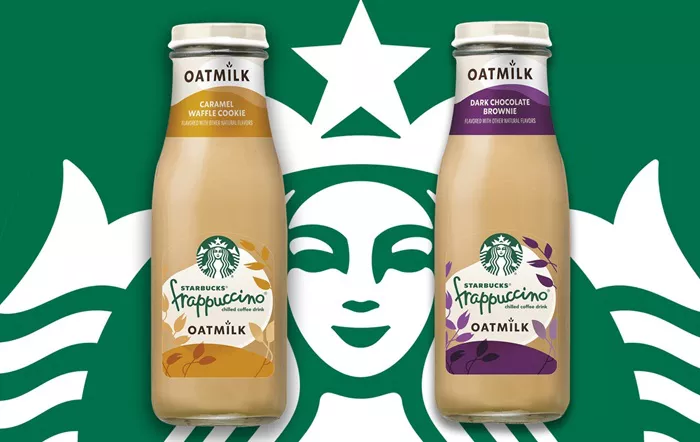In today’s fast-paced world, convenience often takes precedence over health. For coffee lovers, Starbucks’ Bottled Frappuccino presents an easy and enjoyable way to get a caffeine fix on the go. However, as with many convenience products, questions arise about the nutritional value and overall health impact of these bottled beverages. This article delves into the various aspects of Starbucks Bottled Frappuccino, examining its ingredients, nutritional content, health implications, and alternatives, to determine whether it is indeed “bad” for you.
Understanding Starbucks Bottled Frappuccino
Starbucks Bottled Frappuccino is a ready-to-drink coffee beverage that combines brewed coffee, milk, and flavors to create a creamy, sweet drink. It comes in various flavors, including Vanilla, Mocha, and Caramel, appealing to a wide range of taste preferences. These drinks are available in grocery stores and convenience shops, making them accessible for coffee enthusiasts looking for a quick pick-me-up.
Ingredients Breakdown
To evaluate whether Starbucks Bottled Frappuccino is bad for you, we first need to look at its ingredients. Here are some common components found in the Frappuccino:
- Coffee: Brewed coffee is the primary ingredient, providing the caffeine kick.
- Milk: Often whole milk or skim milk is used, adding creaminess and calcium.
- Sugar: High levels of sugar contribute to the sweetness, often exceeding the recommended daily intake.
- Flavoring: Various flavoring agents are included, which can range from natural to artificial sources.
- Stabilizers and Preservatives: These ensure the product remains shelf-stable and maintains its flavor over time.
Nutritional Content
The nutritional content of a Starbucks Bottled Frappuccino can vary by flavor, but a standard serving (about 13.7 ounces) typically contains:
- Calories: Approximately 200-300 calories
- Sugar: 30-45 grams
- Fat: 5-10 grams
- Protein: 4-6 grams
- Caffeine: Around 100 milligrams
These figures can fluctuate depending on the specific flavor and any additional ingredients used in limited edition versions.
Health Implications
Sugar Content
One of the most concerning aspects of Starbucks Bottled Frappuccino is its high sugar content. Consuming excessive sugar can lead to various health issues, including:
- Weight Gain: High-calorie, sugary drinks can contribute to obesity when consumed regularly.
- Diabetes: A high sugar intake is linked to insulin resistance and an increased risk of type 2 diabetes.
- Heart Disease: Excessive sugar consumption is associated with an increased risk of heart disease due to its effects on blood pressure and inflammation.
The American Heart Association recommends that women limit added sugars to 6 teaspoons (about 25 grams) per day and men to 9 teaspoons (about 37.5 grams). A single Bottled Frappuccino can exceed these recommendations, making it essential to monitor your overall sugar intake throughout the day.
Caffeine Levels
While caffeine can offer benefits such as increased alertness and improved concentration, excessive caffeine intake can lead to negative effects, including:
- Insomnia: Consuming caffeine late in the day can disrupt sleep patterns.
- Anxiety: High caffeine intake may exacerbate anxiety symptoms in some individuals.
- Digestive Issues: For some, caffeine can lead to digestive discomfort or acid reflux.
The caffeine content in a Bottled Frappuccino is comparable to a standard cup of coffee, so it’s important to consider total daily caffeine consumption, especially if you consume other caffeinated beverages.
Artificial Ingredients
The presence of artificial flavors and preservatives can also raise concerns for health-conscious consumers. While the FDA generally recognizes these substances as safe, some studies suggest that long-term consumption of artificial additives may have negative health effects.
Comparing with Other Beverages
When assessing whether Starbucks Bottled Frappuccino is bad for you, it’s helpful to compare it to other common beverages:
- Sugary Soft Drinks: While a Bottled Frappuccino is generally lower in sugar than many sodas, it still contains significant amounts. Many sodas also lack the protein and caffeine found in Frappuccinos.
- Iced Coffee: Homemade iced coffee can be a healthier alternative. By controlling the amount of sugar and cream, you can create a similar drink that better fits your dietary needs.
- Juice: Many fruit juices are high in sugar and calories. However, they often provide vitamins and antioxidants that a Bottled Frappuccino lacks.
Recommendations for Consumption
If you enjoy Starbucks Bottled Frappuccino but are concerned about its health implications, consider the following strategies:
- Moderation: Limit consumption to occasional treats rather than a daily habit.
- Pair with Healthier Choices: Balance your diet by pairing the Frappuccino with healthier meals and snacks throughout the day.
- Hydration: Ensure you’re drinking enough water and other low-calorie beverages to maintain overall hydration.
Healthier Alternatives
If you’re looking for healthier alternatives to Starbucks Bottled Frappuccino, consider the following options:
Homemade Frappuccino: Blend brewed coffee with ice, milk, and a natural sweetener like honey or agave syrup. You can also experiment with flavors using cocoa powder or vanilla extract.
Cold Brew Coffee: Brew coffee using cold water for a smooth flavor. Serve it with a splash of milk or a non-dairy alternative and a drizzle of honey for sweetness.
Iced Lattes: Combine espresso or strong brewed coffee with cold milk and ice. This can be sweetened to taste, and you can control the ingredients.
See Also: How Many Different Drinks Does Starbucks Have?
Conclusion
So, is Starbucks Bottled Frappuccino bad for you? The answer isn’t straightforward. While the convenience and flavor of these drinks can be appealing, their high sugar content, artificial ingredients, and caffeine levels can pose health risks if consumed excessively. Moderation is key, as is being mindful of your overall diet and lifestyle. For those who enjoy a sweet coffee beverage occasionally, a Bottled Frappuccino can fit into a balanced diet. However, exploring healthier alternatives may be a worthwhile endeavor for those looking to prioritize their health while still enjoying their coffee fix.
In the end, whether Starbucks Bottled Frappuccino is “bad” for you largely depends on your individual health goals, dietary needs, and consumption habits. Make informed choices, and enjoy your coffee responsibly!
Related Topics
Is There Anything Keto at Starbucks?
Unveiling the 6 Rarest Starbucks Tumblers

